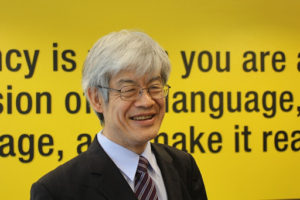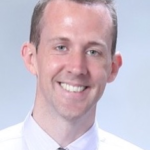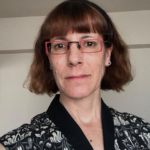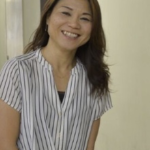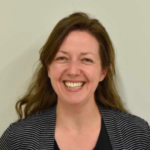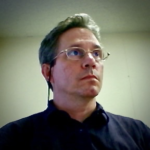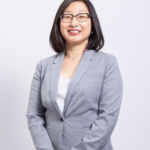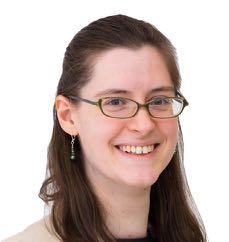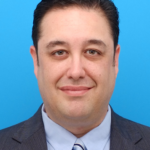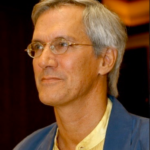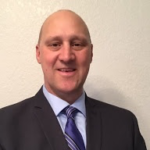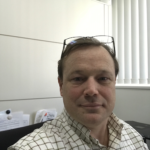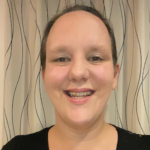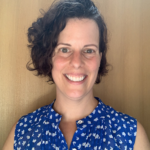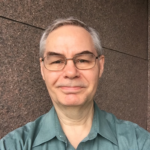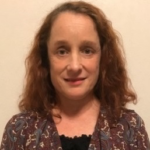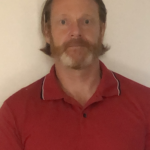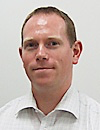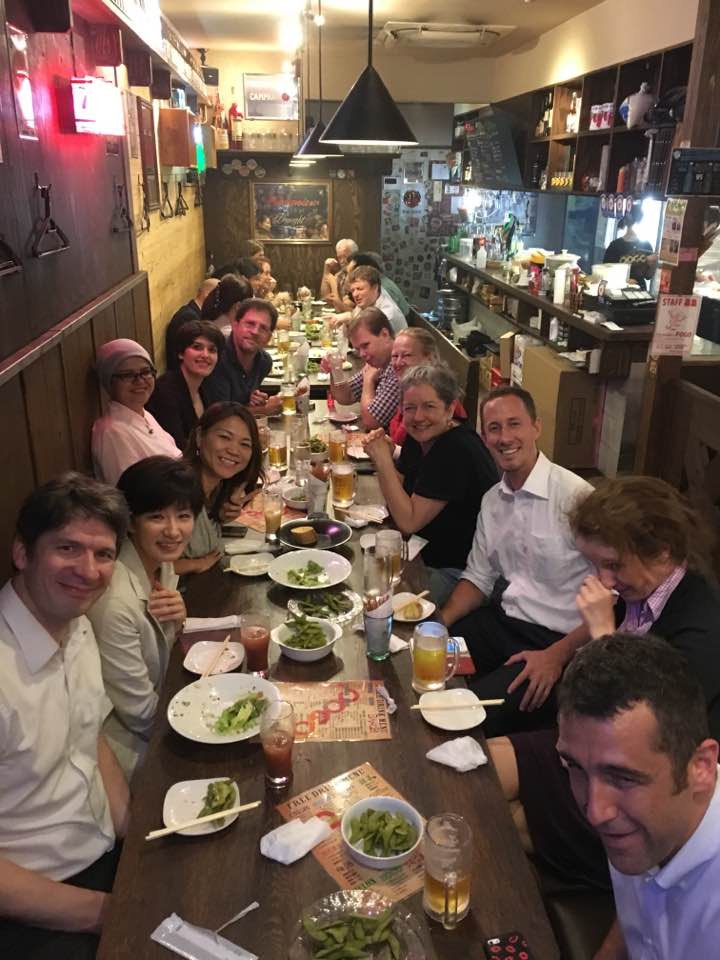The 2020 conference marks our first foray into the online conference world. We will have plenary talks by Professor Masaki Oda of Tamagawa University and Jennie Roloff Rothman, Principal Lecturer of Professional Development and Teacher Development in the English Language Institute at Kanda University of International Studies. In addition, there will be 25 presentations in Zoom and YouTube Premier.
We would like to express our appreciation to the JALT NanKyu chapter, the conference organizing team, and the presenters, who have endeavored to make this conference a success.
Because publishers have taken the time and effort to provide vast amounts of support to college and university teachers during the Covid-19 pandemic, this year we offered free, unvetted presentations to the publishers who usually sponsor CUE SIG events as a way to thank them. We are pleased to announce that Atama-ii Books and Oxford University Press will each give a presentation at our conference.
After the conference we would like to offer the opportunity to presenters to submit their papers for a peer-reviewed OnCUE Journal Special Issue. We will have more details about the publication after the conference.
Thank you for your participation and dedicated effort to make both the CUE SIG and this conference a success.
Wendy M. Gough and Mary Hillis
2020 JALT CUE SIG Conference Coordinators
Speaker information and presentation summaries can be found here. Links to the YouTube Premier videos and Zoom sessions will be provided with each presentation summary after the pre-conference registration closes on September 10. A lunchtime hangout will be held in Zoom 2 for anyone who would like to have a chat.
Zoom and YouTube Premier presentations will be 25 minutes long including question and answer time. The Professional Development workshop will be 45 minutes long including question and answer time.
- 9:00-9:25
- 10:00-11:00 Plenary
- 11:15-11:40
- 11:15-12:00 Professional Development
- 12:00-1:00 Lunch Break
- 1:00-2:00 Plenary
- 2:00-2:25
- 2:45-3:10
- 3:30-3:55
- 4:15-4:40
- Asynchronous YouTube Presentation (can be viewed anytime)
- Conference Social in Zoom
 Guy Cihi
Guy Cihi
gcihi@lexxica.co.jp
Zoom
Measuring the Effects of TGT Cooperative Learning on Vocabulary Acquisition
4,000 students used the same mobile vocabulary application. The 2,000 students on teams learned 48% more words than the 2,000 studying alone. The Team Challenge transformed self study into a team effort where students pulled together and motivated each other. Details about the methods, outcomes, and next steps are covered.
Bio:
CEO Lexxica R&D. Creator and Producer of Disney’s World of English, World Family Club, PlayAlong, WordEngine, Cartoon Word Power, and Words & Monsters.
 Mark Hammond
Mark Hammond
hammond@staff.kanazawa-u.ac.jp
Zoom
ESP of Procedural Monologues: Comparing Native and Non-Native Texts
The presentation introduces a pilot study that compares how native speakers of English and Japanese university undergraduates give directions in simple procedural monologues when demonstrating the use of tools, machines, or materials. Methodology, preliminary findings, and a developing analytical framework of linguistic characteristics and communicative functions will be discussed.
Bio:
Mark Hammond is an associate professor at Kanazawa University. He is a member of the Faculty of Foreign Language Studies in the university's Institute of Liberal Arts and Science.
Zoom
Towards a Holistic Perspective on Emergent L2 Study Emotions
This interactive presentation will argue the need for a more holistic approach to empirical work dealing with L2 study emotions. Utilizing a ‘shifting lens’ approach (Ushioda, 2015), the presenter will prompt audience members to consider L2 learner emotions in a complex fashion through discussing introspective and dialogic data.
Bio:
Richard J Sampson is an Associate Professor at Rikkyo University. He uses action research approaches to explore experiences of classroom language learning from the perspectives of students and teachers.
Zoom
This session will have breakout rooms
In this presentation, I will discuss the issues of ‘division’ in university English language programs, with a special attention to those unique to higher education in Japan. After a brief overview of the current state of English language programs in Japanese universities, I will give some examples of the administrative structures of English language programs within institutions along with the advantages and disadvantages of each of the examples. This would give the audience a chance to reflect on their own situations.
I will then discuss the issues of the following ‘divisions’ which have often been raised as problems in the ELT profession; 1) Full timers vs. Part timers, 2) Japanese vs. Non-Japanese, and 3) Native English speakers (NES) vs. Non-native English Speakers (NNS), in relation to the shift in the ideas about English in Japan in the past three decades. I would also like the audience to share their views on the issues.
As an example of what we can do under various constraints, I would like to share the story of the case of the Center for English as a Lingua Franca (CELF) at Tamagawa University of which I had been the director for six years until March 2020, focusing on how to overcome the negative factors of the three ‘divisions’ discussed, and make some suggestions for both administrators and teachers.
Bio:
Masaki Oda is Dean of the Graduate School of Humanities and Professor of Applied Linguistics at Tamagawa University, where he also serves as a member of the Board of Trustees. He is a founding director of the Center for English as a Lingua Franca (CELF). His research interests include socio-political aspects of language teaching, learner beliefs and critical discourse analysis. He is a Vice President of JACET and the Vice President for Membership of AsiaTEFL.
Leveth Jackson
YouTube Premier
Developing Debate Skills in University: Students Using Closed Facebook Groups and Zoom
This presentation will outline a range of activities that can be performed inside a closed Facebook group and Zoom video conferencing to enhance students’ debate skills in a mixed group of 1st-year to 4th-year university debate class.
Bio:
Leveth Jackson teaches at Keiai University in Chiba Prefecture. She has been teaching EFL in Japan for over six years. She previously worked at the Shizuoka Prefectural Education Center.
YouTube Premier
Effectively Implementing Literature Circles into Japanese University EFL Classes
This presentation provides an overview of the first stage of an action research project focusing on the effective implementation of Literature Circles for Japanese university students utilizing an assigned roles framework. The results of the study, as well as possible implications for future teaching practice, will be discussed.
Bio:
Andrew Gill has taught in universities in Japan for 15 years, including a number of years in supervisory roles. His research interests include reflective practice, peer observation, and literature circles.
Kazumi Kato
Zoom
Fieldwork Projects to Learn Content English
This presentation will explain two fieldwork projects completed in an English communication class at a Japanese marine science university that taught language for describing content related to the students’ majors, and their retention of the language they learned to complete the projects.
Bio:
Dr. Wendy M. Gough is an associate professor in the Faculty of Foreign Studies at Bunkyo Gakuin University. Ms. Gough researches academic writing curriculum and materials development and extensive reading.
Bio:
Kazumi Kato is a lecturer at Tokai University, School of Marine Science and Technology. Her research interests are interlanguage pragmatics, speech acts, task-based language teaching, and cooperative learning.
o_kennedy@nagahama-i-bio.ac.jp
Sandra Healy
Zoom
Technology is no Band-aid: A Duolingo Failure in the High School Classroom
This presentation describes an investigation into a failed project to introduce the language learning application, Duolingo, to high school students. The results of qualitative and quantitative data analyses reveal the complicated relationship between the students, their smartphones, their perceptions of education, and the importance of socio-cultural factors in technology uptake.
Bio:
Olivia Kennedy teaches at Nagahama Institute of Bioscience and Technology. She is passionate about improving learner experiences and outcomes in the L2 classroom.
Bio:
Sandra Healy is an associate professor at Kyoto Institute of Technology. Her research interests include the use of technology in second language education and issues concerning identity.
Dawn Lucovich
Zoom
45 minute Professional development Session
JALT Writers' Peer Support Group Workshop for Aspiring Writers and Peer-Readers
This workshop will familiarize both aspiring writers and potential peer-reader recruits with supportive readership practices and professional development opportunities available to JALT members through collaboration with the all-volunteer Writers' Peer Support Group (PSG). The PSG aims to help college educators develop their de rigueur publication histories and professional service CVs.
Bio:
Paul Beaufait is an Associate Professor at The Prefectural University of Kumamoto, a Member-at-large in NanKyu JALT, and ICT Coordinator acting Coordinator-in-chief for the JALT Writers' Peer Support Group (PSG).
Bio:
Dawn Lucovich is an Assistant Professor at The University of Nagano, President of Nagano JALT, and External Coordinator and Reader for the JALT Writers’ PSG.
Zoom
MEXT has identified professional development (PD) as necessary for meeting the changing educational needs of the 21st century and innovating its education system (Murakami, 2019). In order to be effective, PD must be context-specific and focus on cultural and institutional needs while also meeting the needs of educators and students (Guskey, 2003; Kinugawa & Tachi, 2003; Richards, 2010). All of these factors are necessary to gain the buy-in to make PD successful.
In this plenary talk, the speaker will introduce how those tasked with promoting PD at their university are responding to teacher and institutional needs while working to build connections with faculty across campus. This particular PD program integrates the history of the institution with Drago-Severson’s (2009) learning-oriented model of adult development to provide effective support for EFL educators. The speaker will highlight activities that foster collaboration, promote reflective practice, encourage participation in the academic community, and provide support with technology. Additionally, results from feedback surveys regarding teachers’ perceived usefulness of these activities will be shared. The plenary will close with a discussion of the possibilities and challenges in creating a successful PD program in the hopes that attendees leave with ideas to apply in their own teaching context, both formally and informally.
Bio:
Jennie Roloff Rothman is Principal Lecturer of Professional Development and Teacher Development in the English Language Institute at Kanda University of International Studies in Japan. She has been involved in the second language education academic community of Japan for over fifteen years, ten of which have been at the university level. She holds an MA TESOL from Teachers College and is pursuing an EdD at Northeastern University in Curriculum, Teaching, Leadership, and Learning. Her research interests include teacher professional development and reflective practice as well as the use of critical thinking and global issues in the second language classroom.
YouTube Premier
Ideas for Doing Student Oral Presentations in Online Courses
This short presentation reflects on teaching an ERT (Emergency Remote Teaching) oral presentation course to Japanese university students. The talk will cover challenges faced and ideas gained from doing the course completely online. The ideas covered can also be applied to doing oral presentations in more general ERT oral communication courses.
Bio:
Paul McAleese is an Associate Professor at Nara Institute of Science and Technology. His research interests include spoken discourse, phraseology, and phonology. Paul also administers the language learning website https://pomaka.com/.
kicvalies1@u-shizuoka-ken.ac.jp
James Herbach
YouTube Premier
University Speaking Assessment as Collaborative and Self-effective Skill Development
This action research is based on student needs for more focus on speaking. The aim is to improve confidence and communicative ability through classroom-based speaking assessment tools. Surveys showed that confidence increased by 4.2% and general English skill by 13.9%. The final and midterm median grades differed by 25%.
Bio:
Kinsella Valies is an adjunct professor at the University of Shizuoka. Kinsella received her Masters in Applied Linguistics from Mary Immaculate College/University of Limerick. Research interests include TBLT.
Bio:
James Herbach is an adjunct professor at the University of Shizuoka. Previously, he worked at Kanda University of International Studies in Chiba. Research interests include student assessments.
Paul Johnson
Zoom
Have Smartphone Will Travel: Study Abroad in the Age of Digital Technology
In this presentation, the researchers will outline the results of a survey-based research project that examined how students engaged in study-abroad-utilized mobile-assisted language learning (MALL) informally before and after their trip. The data revealed that both perceptions and usage of MALL significantly increased after study abroad.
Bio:
Daniel Mills, Ed.D. is an associate professor in the Economics Faculty at Ritsumeikan University. His research interests include mobile learning and technology acceptance and adoption.
Bio:
Paul Johnson teaches EFL at Changshin University, Korea. He is working on his MSc TESOL with Technology for Teaching at the University of St. Andrews.
Zoom
Hope You Sleep Well! Helping Students Sleep Well and Have Hope!
Teachers socially showing that they care about students’ well-being can create a mutually respectful psychological atmosphere in classes. Especially during these times, showing students how to self-regulate their sleep and their hopes can go a long way toward improving their participation in our remotely taught classes and generate motivation.
Bio:
Tim Murphey (PhD Université Neuchâtel, Switzerland) is co-author and author of 10 books. He is presently a semiretired visiting professor at the Research Institute for Learner Autonomy Education (RILAE), Kanda.
Zoom
Translanguaging: Theoretical and Pedagogical Implications in the Japanese University ESP Classroom
This presentation will outline the implications of incorporating translanguaging techniques in an ESP- focused Japanese EFL classroom. An overview of the benefits of incorporating translanguaging will be provided. Then, an overview of translanguaging and an explanation of how these approaches were incorporated in the Japanese EFL classroom will be explained.
Bio:
Kevin Bartlett is an Associate Professor at Tottori University. His research interests lie in SLA, applied linguistics, bilingualism and Japanese socio-cultural studies. He has an Ed.D from USQ, Australia.
Robert Remmerswaal
YouTube Premier
Student Perceptions of English Learning Technology
Spring 2020 offered an ideal time to gather student perceptions of language learning technology. With little influence from the teacher, online tools were the main method of learning in our classes. 800 students were surveyed for their perceptions of the success of the emergency online course.
Bio:
Sojo University, Kumamoto
Alexander Cameron
YouTube Premier
Reliance on Quizlet for Content and Assessment
When hurriedly preparing online courses, the two presenters independently included vocabulary programs utilizing the flashcards application Quizlet. Most students carried out their assigned vocabulary study, but did they benefit from doing so? Were they gaming the system for easy points? Data from a survey and completion rates will be discussed.
Bio:
Stephen Paton (Fukuoka University) has been teaching in Japan since 2008. He is the editor of CUE Circular and president of Fukuoka JALT.
Bio:
Alexander Cameron teaches English at Fukuoka University. His research interests include e-learning and vocabulary.
Zoom
Leadership Preferences for Self-Access Learning Centers (SALCs)
This presentation reports the findings of a research project done for the researcher's Ph.D. program in leadership with English content that was completed in the spring of 2020. The research investigated the leadership style preferences for workers at self-access learning centers at universities and colleges throughout Japan.
Bio:
Dr. White is a Lecturer in the School of International Liberal Arts at Miyazaki International College. His research interests include learner autonomy and leadership of self-access learning centers in foreign language education.
Mark Firth
Publisher Presentation
Zoom
The speakers, co-coordinators of a large-scale (2,000+ students, 70+ teachers) and long-running English program at a private university in Tokyo, illustrate how the gradual implementation of a Moodle LMS over several years facilitated a successful ERT (Emergency Remote Teaching) response in Spring 2020, and is now leading to accelerated innovation of the program, continued interest in faculty development, and greater satisfaction among students. This session may be of interest to language program coordinators, teacher trainers, and curriculum developers.
Bio:
Marcos Benevides is a co-coordinator of the Liberal Arts College English Language Program at J. F. Oberlin University in Tokyo. He is also the co-author of many ELT textbooks, most recently the ELTon award winner, Widgets Inc.: A task-based course in workplace English.
Bio:
Mark Firth is a co-coordinator of the Liberal Arts College English Language Program at J. F. Oberlin University in Tokyo. His recent grant-supported research interests have included pragmatics and supporting students with disabilities.
Zoom
The Effects of Form-Focused Instruction on Speaking Proficiency Development:Changes in Learner Speaking Self-Efficacy
In this seven-week-long classroom-based study, approximately 100 Japanese university students narrated a different four-picture cartoon in English every week. Pre- and post-course questionnaires were distributed where participants were asked to evaluate the activity. Results of the present study indicated that form-focused instruction had no effect on speaking proficiency development.
Bio:
Nancy Lee is a lecturer at Osaka University, and she is interested in speaking proficiency development.
YouTube Premier
Reflections from a Four-Dimensional EFL Classroom
This presentation highlights the evolution of an EFL course that integrated the Four-Dimensional Education Framework (Fadel, Bialik, & Trilling, 2015) over two consecutive years. Course documents, student reflections, and course evaluations were analyzed to understand how projects were designed and implemented to foster students' development of the framework’s four dimensions.
Bio:
Adrianne Verla Uchida is an assistant professor at Nihon University in the College of International Relations. Her research interests include reflective practice, professional development, project-based learning, and curriculum design.
YouTube Premier
Extending Measurements of Interactional Competence: A Preliminary Exploration
Research shows multi-speaker oral tests more adequately measure interactional competence than the traditional examiner-examinee test format. However, current assessment rubrics do not gauge a learner’s ability to interact with the information put forth by peers. The presenter will describe the development of a rating tool that seeks to address this weakness.
Bio:
Gretchen Clark is an assistant professor of English at Kyoto Notre Dame University.
Her research interests include pedagogy, NeuroELT, social justice, and critical thinking in ELT.
Zoom
Collaborative Online Interactive Fiction Writing with Japanese English Learners
Collaborative writing in a creative writing context can, if deployed properly, be an excellent way to motivate learners to work together to push the limits of their storytelling abilities. Using online tools to produce a work of illustrated interactive fiction can be an expandable and enjoyable collaborative learning experience.
Bio:
Phillip Johnson is a Global Teaching Fellow at Tokyo International University.
Zoom
Scanning Practice and Testing with Online or Paper Methods
The presentation will show how to teach and test scanning skills, whether in a paper-based or remote-teaching situation. The latter will describe settings in Moodle. Testing in both cases will involve time-controlled activities.
Bio:
Glen Hill is a tenured associate professor at Obihiro University of Agriculture and Veterinary Medicine. He teaches mainly reading and writing skills to science students.
Jamie Purdon
YouTube Premier
Welcome to English Chat Time: Reflections on a Self-Access Conversation Lounge
English Chat Time (ECT) sessions offer an opportunity for informal communication and practice outside the classroom. This paper presents an analysis of the ECT program from the perspectives of professors and students, suggesting ways to improve or adapt such programs to an online format due to the current emergency.
Bio:
Quenby Hoffman Aoki teaches at Seikei University. She holds degrees from Georgetown University (Japanese Language) and California State University (Education/TESOL), and she is Coordinator of GALE, the JALT Gender Awareness in Language Education SIG.
Bio:
Jamie Purdon teaches at Seikei University. He holds a master's degree from Aston University. His research interests include extensive reading, corpus linguistics, and computer-mediated education.
Zoom
Student Silence in Cross-Cultural Text Chat Communication
Most research focusing on silence has so far been centered on activities conducted in the classroom. With the intention to analyze silence from a different perspective, this presentation will share the results of a seven-week project designed to measure the effects of silence and pause in Japanese EFL students engaged in a cross-cultural (inter-university) online text communication exchange.
Bio:
Currently a member of Gunma University's Center for Language Teaching, Sylvain has been teaching EFL in Japan at a variety of levels since 1993.
Zoom
Student-centered Syllabi: Rethinking Deadlines with Project-Based Learning During the Pandemic (and after)
Having students produce and review their own materials at the end of the semester, such as shared presentations and/or essays, can not only help solve problems for both students and teachers, including technological issues and academic dishonesty, but also, and especially now, lead to a more understanding class dynamic.
Bio:
Andrew Decker teaches English in Osaka at Kansai University, a partner of Chatham University in the US, where he taught English as a Second Language (ESL) for eight years.
Zoom
Action Research into Student-Assessed Out-of-class Post-task Language Use
This presentation reports on action research carried out with a university intermediate oral communication class (N = 20). Participants carried out the post-task repetition of role-plays in pairs outside class time. Furthermore, participants recorded and self-analyzed their discussions. Results showed significant increases in target language usage between a pretest /posttest.
Bio:
At present, Graham Robson is a professor in the Faculty of International Tourism Management at Toyo University in Tokyo. His research interests include autonomy and content-based teaching.
Oxford University Press
Publisher Presentation
Blended Learning for Student and Teacher Support in an Altered School Environment
Students may be returning to classes, but with social distancing measures in place, home study is still an important part of the learning process. During this challenging time, teachers need to be able to assign tasks, track progress, and link self-study materials with classroom activities. In this workshop, we will look at examples from various titles from Oxford University Press to illustrate the benefits of blended learning and a flipped classroom approach. We will see how a combination of print textbooks, e-books, and online practice sites keep learners engaged and active at school and at home, and make the most of valuable classroom time.
Bio:
Rob Peacock currently works at Oxford University Press as an Educational Services Consultant and course coordinator of the Oxford Teachers' Academy. He has spent over 15 years in Japan teaching students of all ages as well as providing teacher support and workshops.


